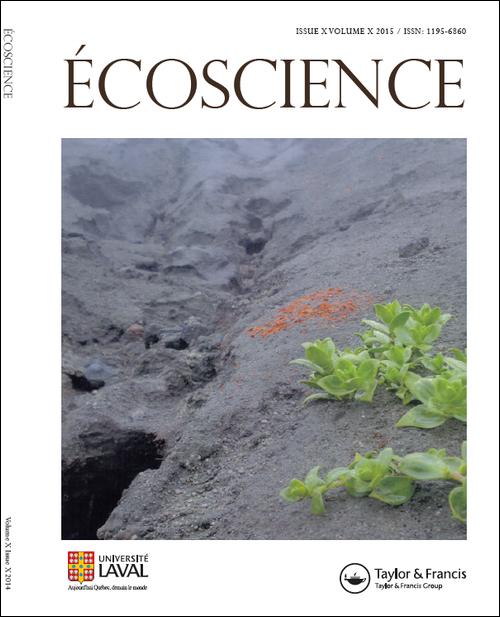Location
Écoscience, is a multidisciplinary journal that covers all aspects of ecology. The journal welcomes submissions in English or French and publishes original work focusing on patterns and processes at various temporal and spatial scales across different levels of biological organization. Articles include original research, brief communications and reviews.
Écoscience est une revue interdisciplinaire qui couvre tous les aspects de l'écologie. La revue accepte les soumissions en français ou en anglais et publie des travaux originaux et inédits sur les processus et les patrons écologiques à différentes échelles spatiales et temporelles et à différents niveaux d'organisation biologique.
Members:
Resources
Displaying 1 - 3 of 3Landscape pattern of seed banks and anthropogenic impacts in forested wetlands of the northern Mississippi River Alluvial Valley
Agricultural development on floodplains contributes to hydrologic alteration and forest fragmentation, which may alter landscape-level processes. These changes may be related to shifts in the seed bank composition of floodplain wetlands. We examined the patterns of seed bank composition across a floodplain watershed by looking at the number of seeds germinating per m² by species in 60 farmed and intact forested wetlands along the Cache River watershed in Illinois.
impact of land-use change on larval insect communities: Testing the role of habitat elements in conservation
Conservationists have proposed that maintaining key elements of the original land-cover type in modified landscapes may mitigate the detrimental effects of land-cover change on residual species. We tested this hypothesis for aquatic insect communities in tank-forming bromeliads in forested and non-forested habitats in Costa Rica. Bromeliad tanks hold much of the standing water in this region and therefore provide an important resource for insects with aquatic larval stages.
The Dynamics of Social Capital and Conflict Management in Multiple Resource Regimes
Increasingly, social capital, defined as shared norms, trust, and the horizontal and vertical social networks that facilitate coordination and cooperation for mutually beneficial collective action, is seen as an important asset upon which people rely to manage natural resources and resolve conflicts. This paper uses empirical data from households and community surveys and case studies, to examine the role, strengths, and limits of social capital in managing conflicts over the use and management of natural resources.




